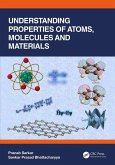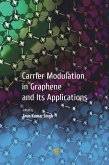This book introduces the latest developments in nanomaterials aimed at the applications in clean energy areas. It overviews the close link between nanomaterials development and energy applications from the experience and perspective of the authors. It discusses the bottom-up synthesis and interface engineering of new materials of different dimensions and describes their applications in future energy devices such as secondary batteries, novel solar cells, luminescent devices, and water splitting electrolyzers.
.
Dieser Download kann aus rechtlichen Gründen nur mit Rechnungsadresse in A, B, BG, CY, CZ, D, DK, EW, E, FIN, F, GR, HR, H, IRL, I, LT, L, LR, M, NL, PL, P, R, S, SLO, SK ausgeliefert werden.









